
Located on a busy stretch of Queen St. W. inside Sonder the Beverley hotel, Ration Beverley is a contemporary, zero-waste restaurant that’s turning heads in the sustainability world thanks to the team’s expert use of age-old preservation, fermentation and foraging practices.
Run by co-founder and executive chef Jef Edwards, co-founder and wine expert Wes Burgundy, and Chris Nguyen, Ration Beverley was only open for nine months before receiving recognition in September 2022 by Michelin Guide Canada. Influenced by the seasons, the restaurant’s menu is in constant rotation, allowing the team to form solid relationships with local purveyors and farmers.
“Our vehicle to sustainability is through preservations, which is pickling, curing, smoking, or the way we would have done things pre-refrigeration,” Burgundy explains. “We know the story of the food before it even hits the table.” The snug space is decorated with refurbished tables made with old tiles, plenty of live plants and tons of reclaimed wood. The bar, stacked with spirits, is the focal point, while a handful of wooden tables with mint green and wicker chairs from Germany dot the front of the restaurant. Towards the back, there’s a more private dining area, great for functions and larger groups.
Recently, the team introduced their new six-course spring tasting menu for $105. The tasting menu includes truffle risotto, shiro miso bread and koji fermented butter, duck leg croquettes, fish croquettes, confit celeriac, roasted maitake, a French onion soup, and ancient grain porridge. Wine pairings can be added to each tasting menu for an additional $65.
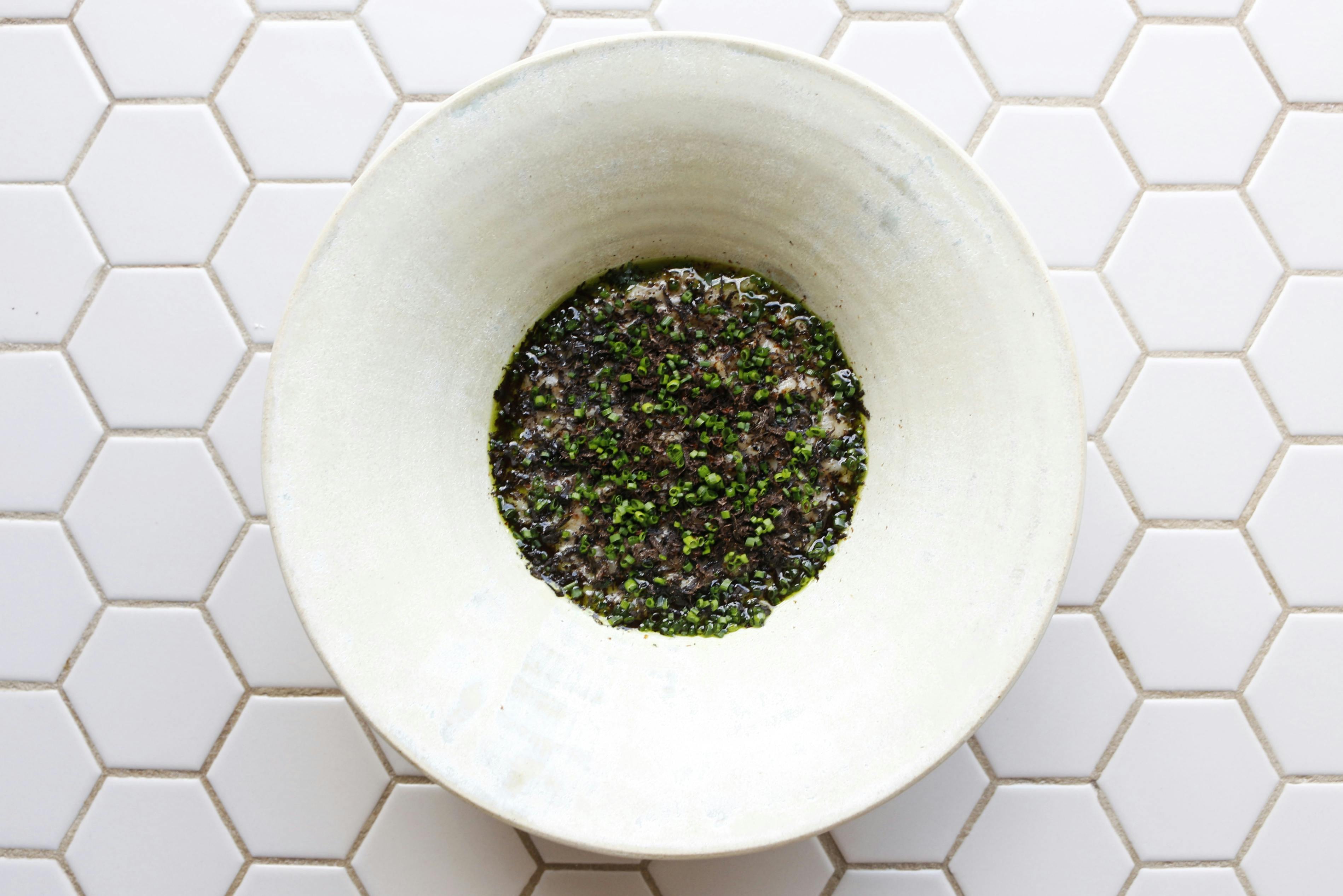
The truffle risotto with fermented fennel uses leftover egg whites from Ration Beverley’s dessert menu to make an egg white garum, which mimics the taste of Parmesan cheese, successfully incorporating a byproduct, rather than a new product.

The shiro miso bread and koji fermented butter. Any day-old bread is fried, smoked and grinded into powder and used to top the French onion soup.
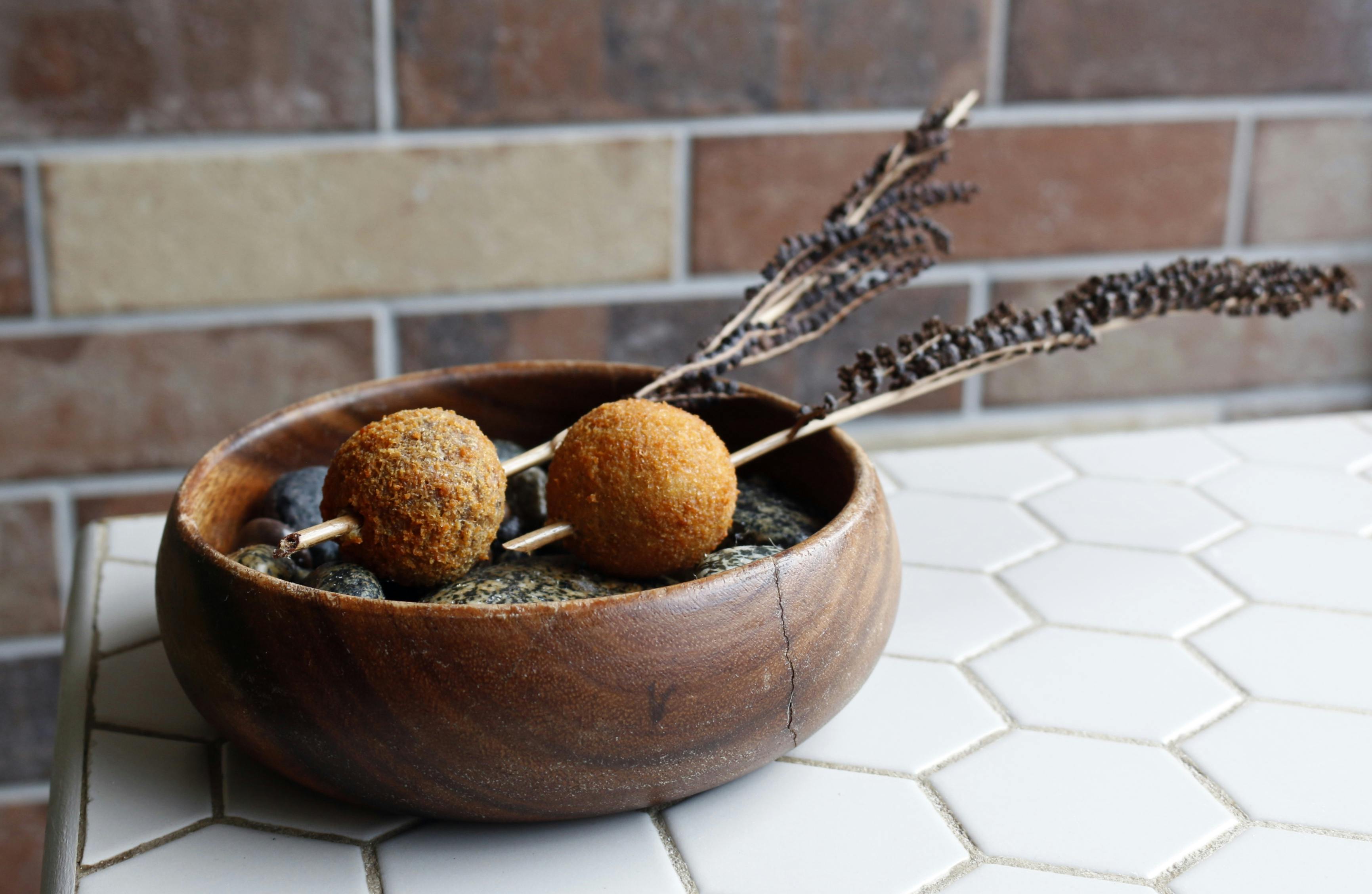
The duck leg croquettes with duck heart garum are speared through skewers on last summer’s bead ferns, which are abundant in the woods and are a sustainably sourced skewer right from nature.
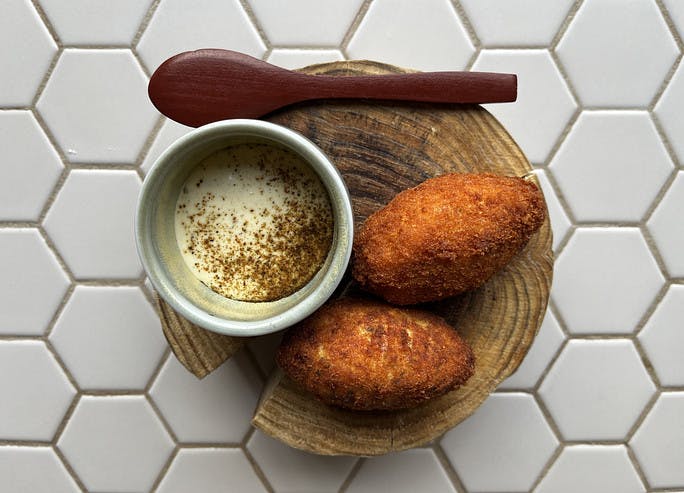
The fish croquettes, served with fermented chilli and apple aioli and leek ash, are a nod to portion control, with often overlooked edible parts of the fish that typically don’t make it onto the plate, like skin, bellies and fillet trim, all incorporated into the croquette.
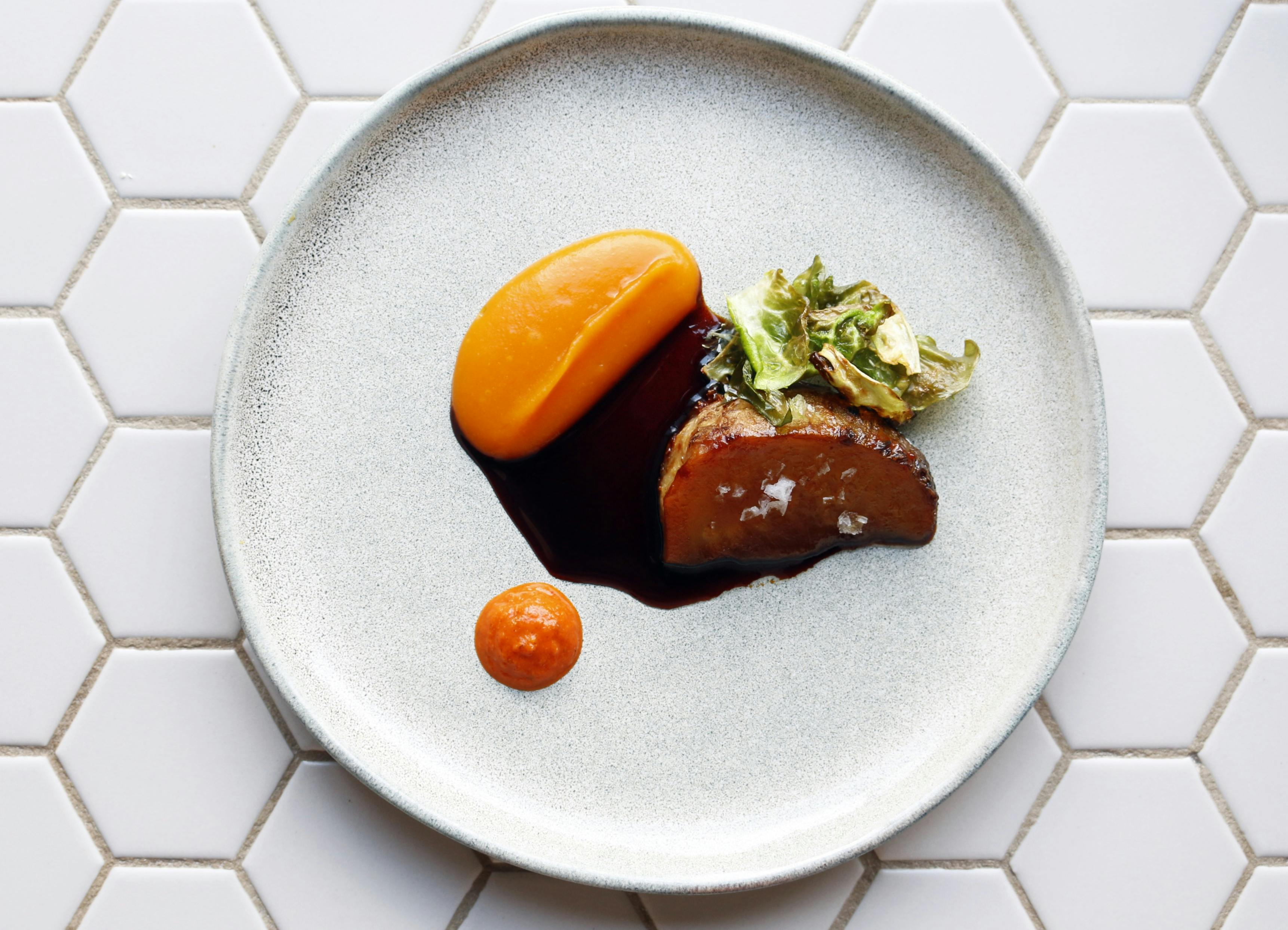
The confit celeriac with burnt celery root peel jus, kanzuri, and squash and fried Brussels sprout leaves is served with a squash and ginger puree made from the peels. The jus can be made from duck garum, or, with burnt celery peels for a vegetarian option.
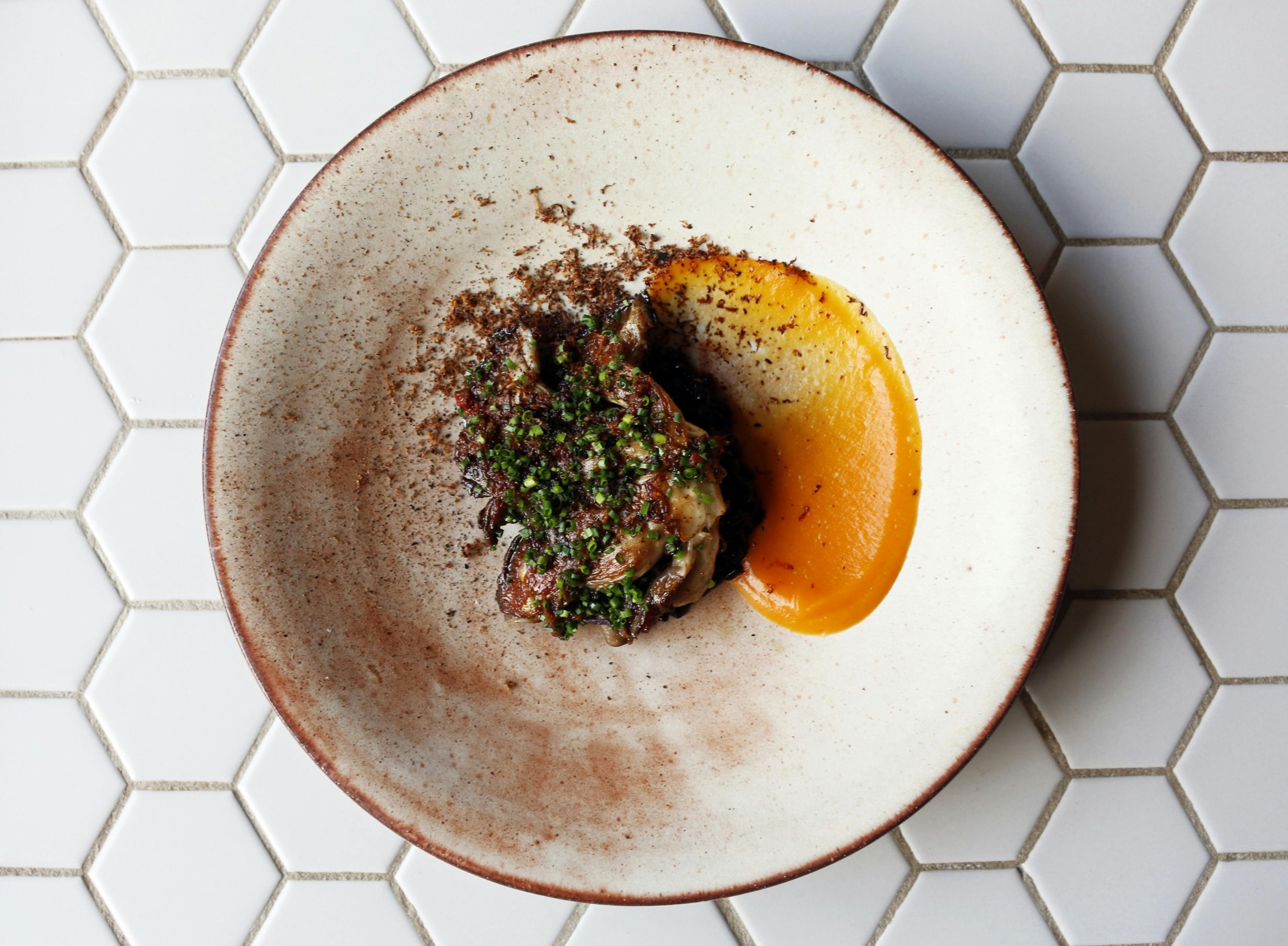
The roasted maitake, wild mushroom xo, and squash. The wild mushroom xo is made from the fermented trims from processing last summer’s wild mushrooms (chanterelles, trumpets, morel, oysters) and a Parmesan garum (umami sauce) made from the ends of Parmesan blocks.
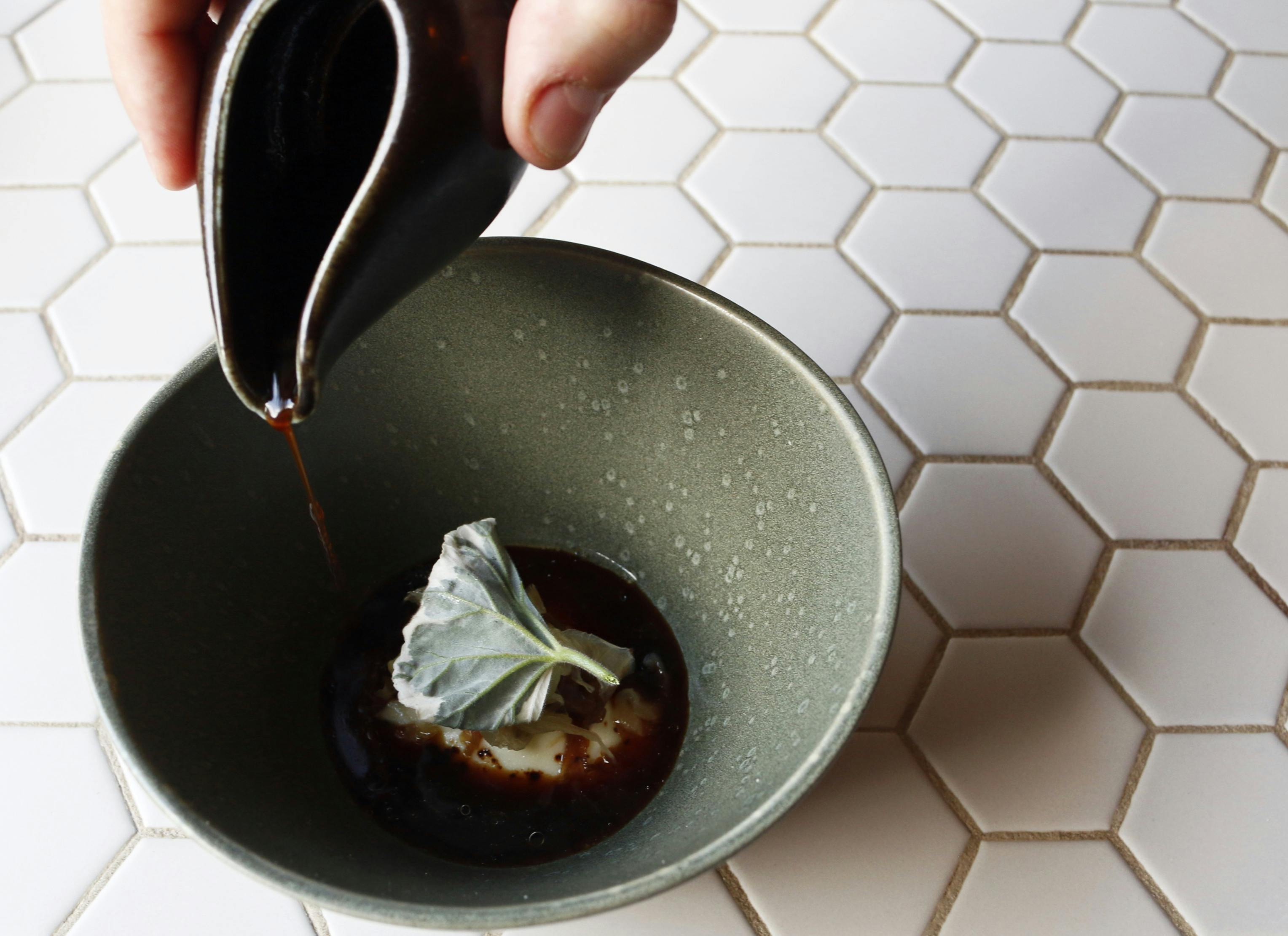
The French onion soup uses fermented onion tops, smoked sheep’s cheese, black garlic jus (which even uses garlic peels) and a five-spice broth.
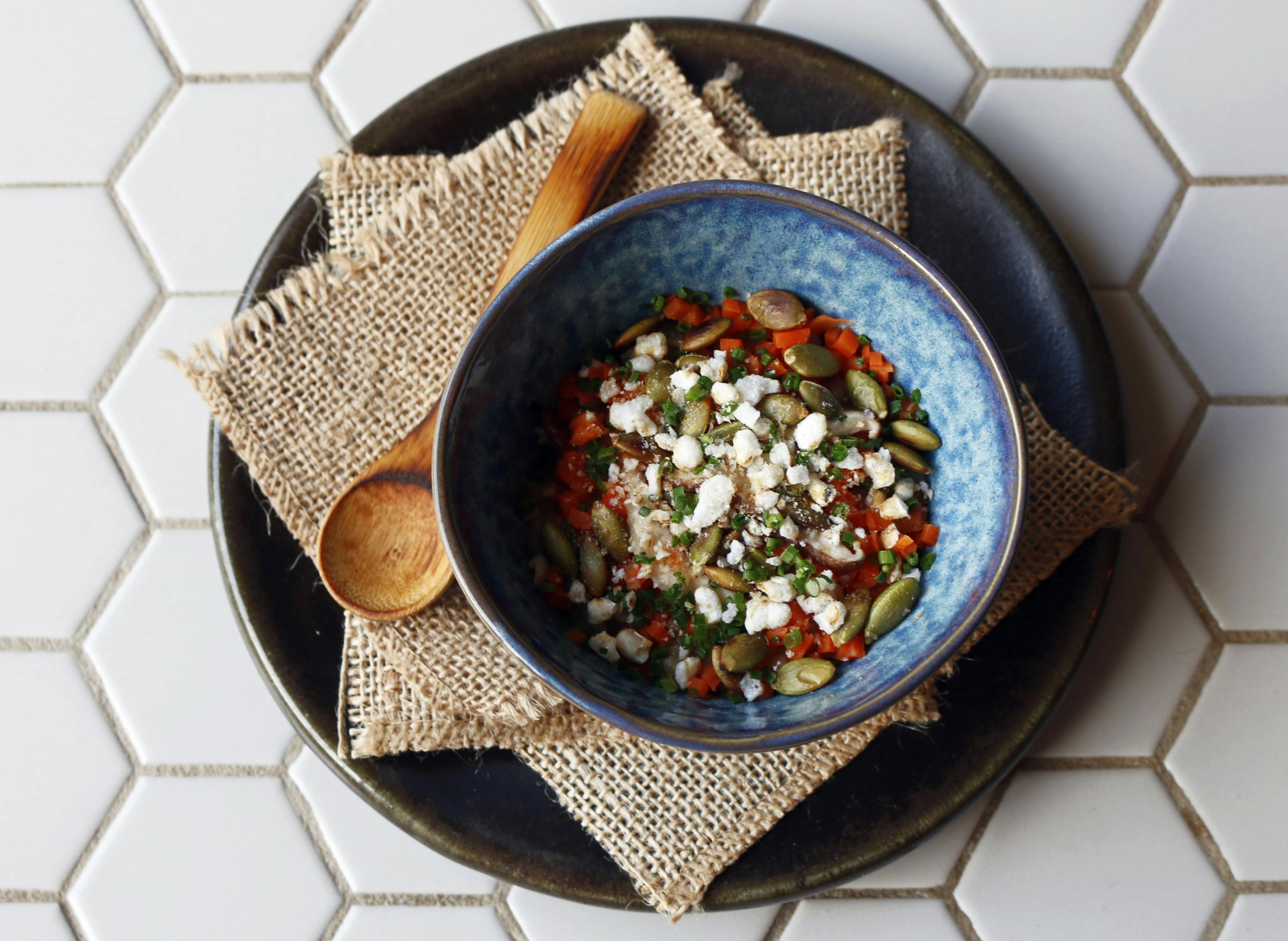
The ancient grain porridge seasoned with lacto fermented tomato vinegar. Ration Beverley processes tomatoes for salads and the ends are salt fermented, then turned into a pulp which is dehydrated and ground into a tomato salt for seasoning other dishes and stocks.
The basement of Ration Beverley is home to a food lab, which has egg incubators that propagate koji (a multi-purpose culinary fungus) as well as a vertical garden which grows seedlings and microgreens, to be used in both the food and beverage menus.
“Whenever we get things coming out of the incubators, in an effort to mitigate organic food waste, most everything will hit a fermentation process,” Edwards says. “If that was going to hit the bin anyways, our philosophy is we should at least try it.”
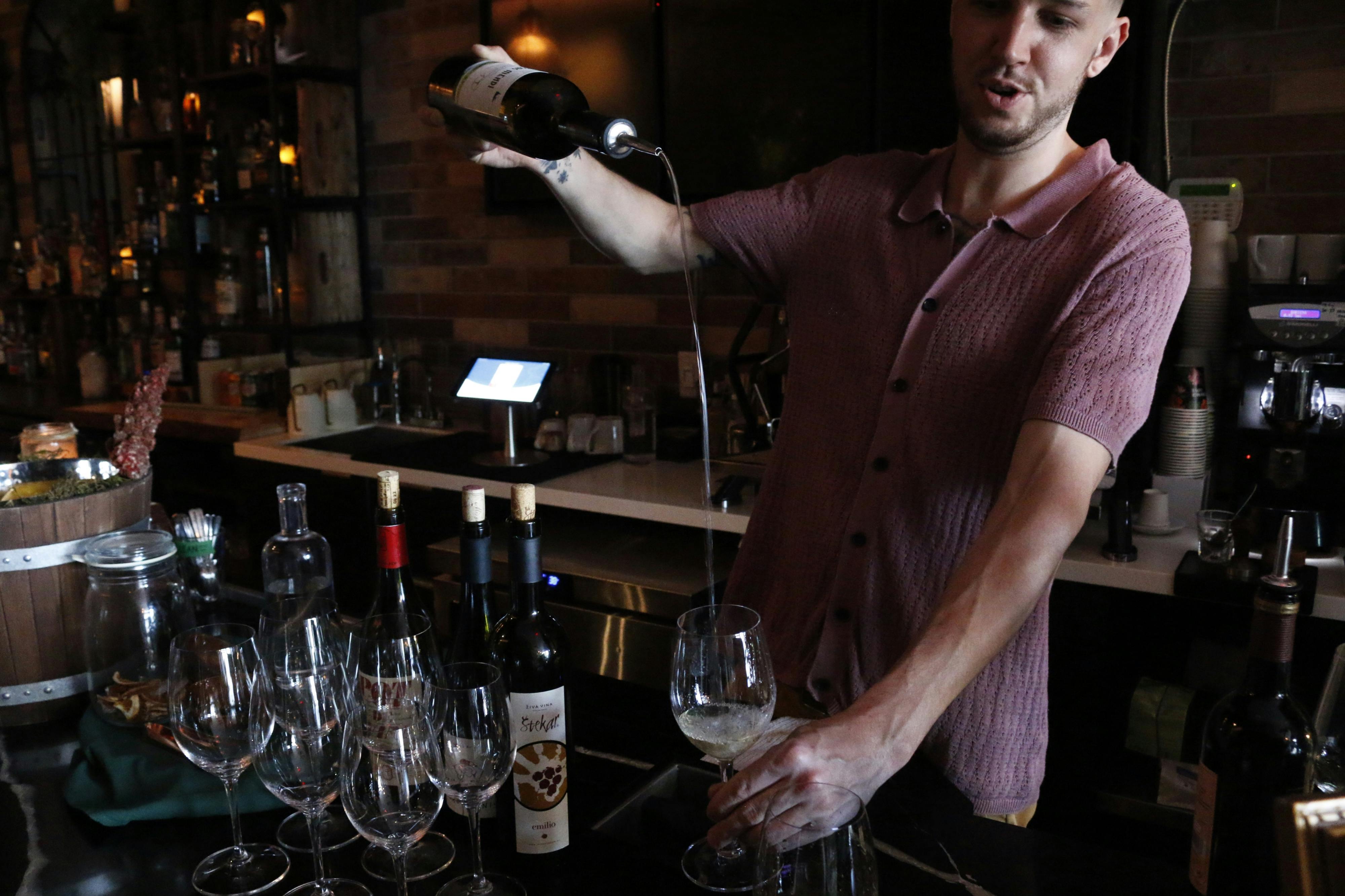
Sustainability efforts continue behind the bar, where beverage consultant and bartender, Hugh Gauntley, ensures any spent citrus peels like lemon and orange, are dehydrated and repurposed as garnish. There are no plastic straws, or even paper-based versions; Ration Beverley uses biodegradable wheat straws crafted straight from hollow wheat grass, which typically gets discarded or used in animal feed.
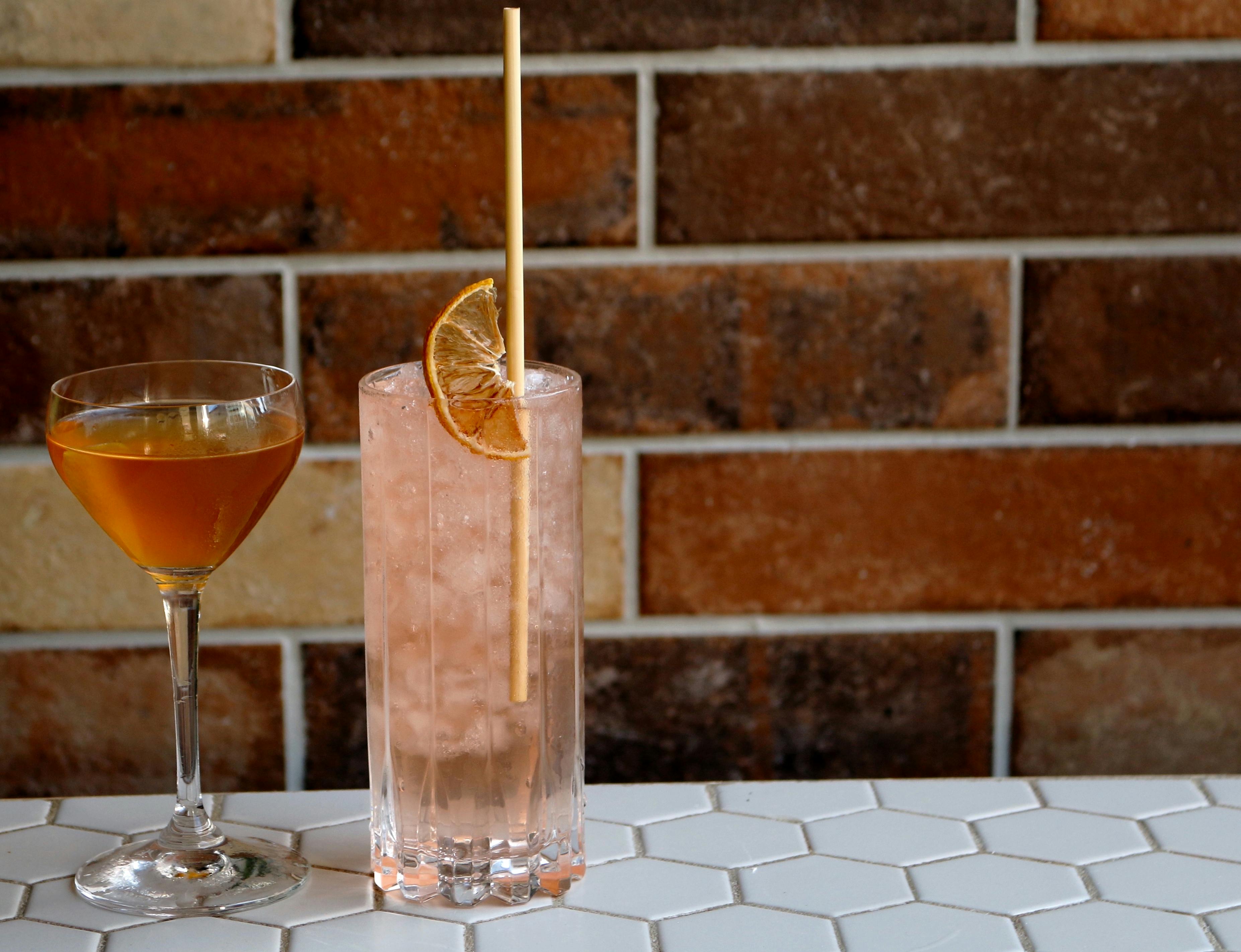
Cocktails at Ration Beverley use dehydrated citrus as garnishes. From left to right: the Ration Sazerac and the Peach and Parsnip.
Gauntley’s version of a sazerac (a stirred cocktail which emerged in the 1850s in Louisiana) uses duck fat-washed cognac, spruce syrup, and Canadian rye, finished with a little bit of absinthe rinsed in a frozen glass. Lemon zest is rubbed around the rim of the glass for a final touch. “The aroma and the aromatics are one of the most overlooked parts of any cocktail,” he explains. “It’s what gives you a nostalgic profile that can really influence how and why you enjoy a cocktail.”
After originally signing the lease in January 2021, Ration Beverley juggled four separate food and beverage concepts prior to opening the official restaurant in November of the same year. It’s been just over a year since the team has led the restaurant to what it is today, and they’re only growing from here.
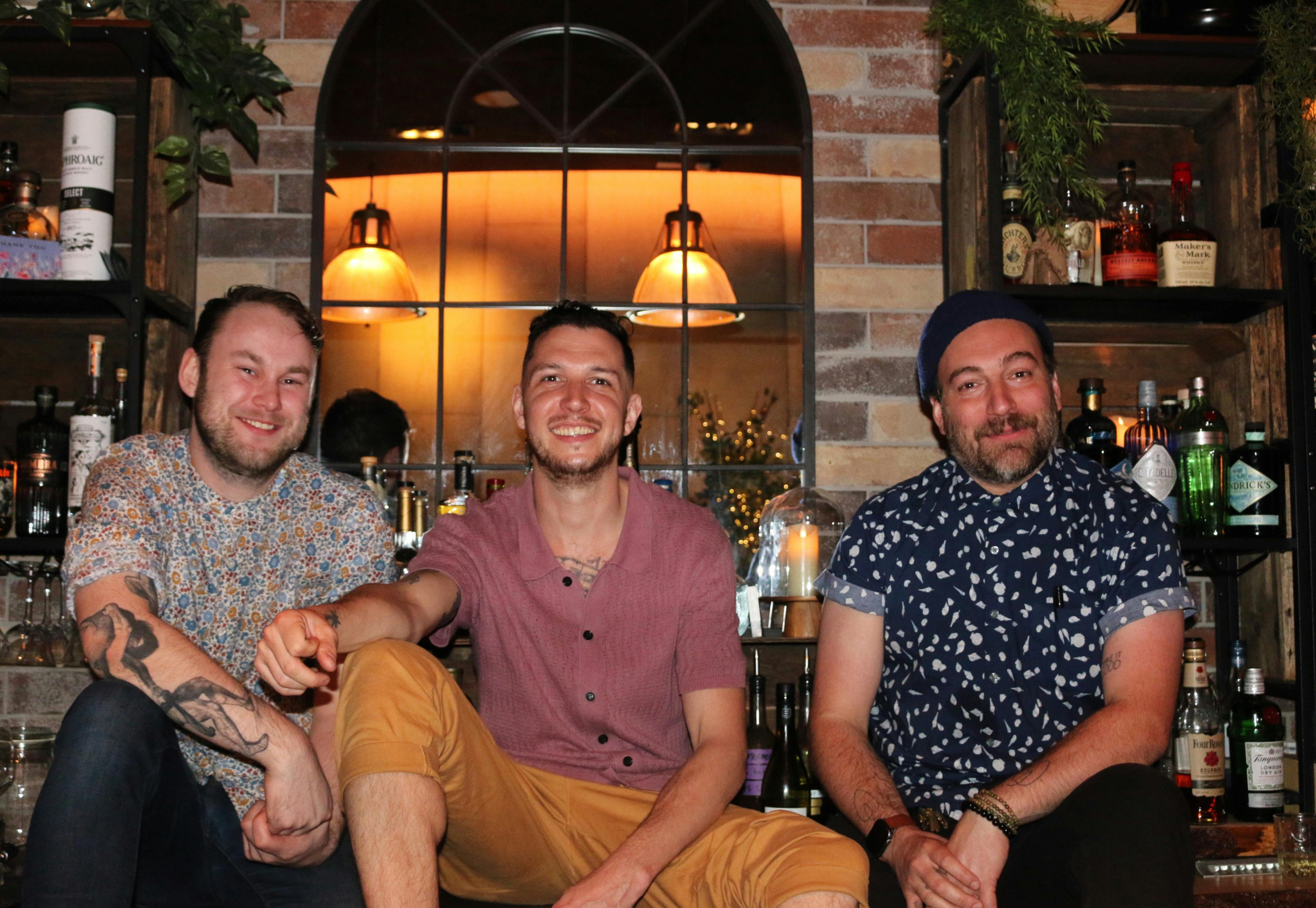
From left to right: Hugh Gauntley, Wes Burgundy, and Jef Edwards.
In July 2021, Ration Beverley launched its rooftop concept as a deconstructed, fine dining snack bar concept. Currently under renovation, the team has plans to introduce an exciting new and separate concept next month that’s a nod to the retro glam of the 1950s Beverly Hills hotel complete with a happy hour, champagne carts, and top-notch pizzas by one of Ration Beverley’s chefs, Vishal Dandekar.
Ration Beverley is located at 335 Queen St. W. and is currently open Wednesday to Friday from 5 to 11 p.m. and Saturday and Sunday from 10 a.m. to 11 p.m.









